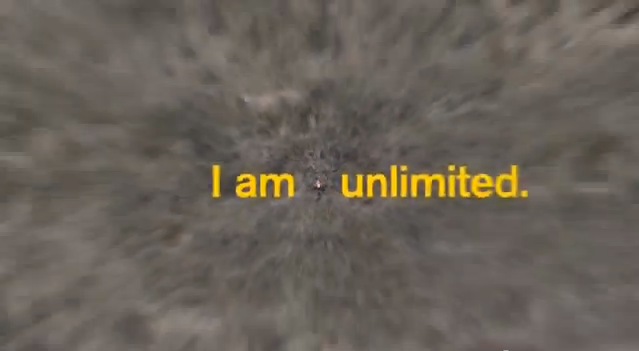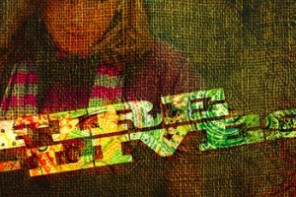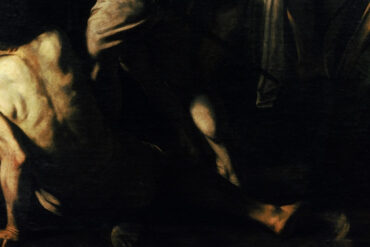This curious claim comes from a recent Sprint commercial for the iPhone 5. The title: “I am unlimited: Picture Perfect.”[1]
The commercial brilliantly captures a very noticeable movement with the rise of social media plus cheap memory plus cloud computing: As it becomes more and more possible to record and publish everything, it starts to feel more and more like an imperative. “We can share every second in data dressed as pixels. … Uploading the human experience.” So why wouldn’t we?
Finally, we have the ability to capture every precious second of this fleeting life. Thanks to my smartphone, my Facebook account, and a host of other technologies and media, I can capture and control my story in photos and status posts, crafting a tale that might fool even me into thinking my life is Picture Perfect. And because the Internet is forever, I can “upload all of me” into the immortal cloud. Nothing need be lost; nothing need truly die.
This is our classic sin dressed up in new, bit-based garb: idolatry. The Tower of Babel had nothing on social media for letting us clamber into the heavens and make an everlasting name for ourselves. To be unlimited, like gods.
Contrast this rosy picture with the biblical witness: Humanity is a “wind that passes and comes not again,” like grass that grows up and then withers, “a mere breath.” During Lent we are reminded that we are dust, and to dust we will return.[2]
And what about the cloud? This heavenly metaphor conceals the reality: that our cloud of immortal information is housed in relentlessly material and earthly banks of servers, gorging on electricity, in constant danger of overheating and continuously lavished with expensive air conditioning, attended by armies of analysts (highly skilled and well paid) who keep the precious data organized, integrated, and accessible. As the information swells, so do the resources it demands.
Because simply storing the data is not enough. As British logician Augustus de Morgan said in 1847: Nobody can rummage the library.[3] As we store every book, broadcast, and story, every tweet, every photo, every “like,” every video, every Internet expression and transaction of fact, opinion, marketing, purchase, sale, and sentiment, we must simultaneously develop new, more comprehensive ways to search, curate, and filter the information. A virtual needle is lost in the Internet haystack if it is not indexed and findable by the person who wants it. This is what the IT industry calls “big data” and information theory historian James Gleick calls “a flood.”
And we do perceive it as a flood. When we are not exulting in the opportunity to “be unlimited” in the cloud, we are floundering frantically in a sea of data with a sensation of drowning. This is information overload.
Don’t get me wrong: I love my smartphone, my Facebook, and all the rest. As the Sprint commercial says, it is spectacular. But let’s not imagine that we are unlimited. There is only one who knows every sparrow and who both names and numbers every star; who lovingly notes the hairs on our heads, knows our every thought, and keeps our every tear. This one does not rely on any number of servers, nor require anything from us—not sacrifice, and certainly not electricity.[4]
Someday our machines will all shut down and our satellites will spin out of the skies. Anyone who really wishes to “upload all of me” must trust in a powerful creator who knows our every aspect and whose memory is eternal; who can make living beings out of dust; who can draw us out of the floods of death and set us on a living Rock. Who can finally remake us in the picture-perfect image of the only one who can truthfully say: “I am unlimited.”
Jennifer Agee has an M.A. from Wartburg Theological Seminary in Dubuque, Iowa. She lives in Fond du Lac, Wisconsin, and works as a managing editor for a small publisher based in Seattle, Washington.
[1] Full transcript: ‘[ Male Announcer ] The miraculous is everywhere. In our homes, in our minds. We can share every second in data dressed as pixels. A billion roaming photojournalists … Uploading the human experience. And it is spectacular. So why would you cap that?
My iPhone 5 can see every point of view … Every panorama. The entire gallery of humanity.
I need to upload all of me. I need, no, I have the right to be unlimited.
Only Sprint offers Truly Unlimited data for iPhone 5.’
[2] Psalm 78:39; 90:5-6; 39:5,11; 103:14
[3] Quoted in James Gleick, “Drowning, surfing and surviving,” New Scientist 210, no. 2806 (April 2, 2011): 30–31. See also The Information: A History, a Theory, a Flood (Pantheon, 2011).
[4] Psalm 50:12-15
Image credit: Still taken from Sprint’s “I am unlimited – Picture Perfect” commercial on YouTube, used under fair use for purposes of comment.





Nicely written! Thank you for this reminder today, Jennifer. I don’t actually own a smartphone and I’m not a compulsive Facebook user, but I always struggle to pinpoint the reasons why I feel weirdly uncomfortable with the technology itself. I think you’re right…I think it’s because these gadgets try (and often succeed) in making me feel “unlimited” when I know, deep down, that I am nothing apart from Christ.
Fascinating analysis. I love all your allusions to the first chapters of Genesis. I remember hearing Rob Bell saying in a sermon that humanity’s first foray into technology was when we exchanged natural stone for the manufactured bricks of the Tower of Babel. Our bit-based binary world of black/white, 0/1, yes/no operates only in dualism, whereas the God of infinity presents the Trinitarian model that opens the door to creativity, collaboration, metanoia, and mystery. Your article makes me wonder if we are at the bottom end of the arc of redemption, heading through our modern Babel and back into the flood (though Peter says fire next time). Are their giants in the land?
Very well written and thought provoking. Certainly, the technology feeds on our narcissistic tendencies which is not a good thing. The more we put ourselves at the center of everything, the more vulnerable we become to the vicissitudes of life.
What I find fascinating is that we, as technology creators, are trying to replicate the ubiquity and omniscience of God in bits and bytes. Maybe this is proof that we are created in God’s image and that our creations distantly mimic his Being.